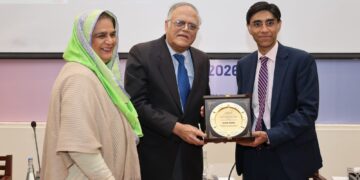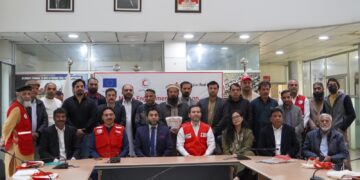ISLAMABAD – Prime Minister Imran Khan Sunday said the country’s projected growth rate at above 4 per cent would spur economic activities in the country, creating job opportunities as well as reducing inflation.
Responding to public queries during a live TV programme ‘Aapka Wazir-e-Azam Aap kai Sath’, the prime minister said economic growth rate had baffled his political opponents who wanted the government to fail in meeting these economic challenges left behind by the successive governments.
He exemplified that the leadership in Malaysia, South Korea and China uplifted their deteriorated economies. In Pakistan, the political governments after 1988 weakened the institutions to loot public money. First they (previous leaders) damaged the country by committing corruption and now hurting it to protect the looted money, he added.
He said had the opposition been sincere with the country, they should be happy over economic turnaround achieved by the incumbent government.
He said after 2016, the country had the lowest debt burden as now the government was returning the foreign debt. He said the government inherited 18.2% current account deficit and for the first time, it went surplus. Calling it a quality growth, the prime minister hoped the economic growth will touch 4.5% in last quarter.
Explaining further as how the government achieved 4% GDP growth, Minister for Energy Hammad Azhar said the National Accounts Committee worked as per UN standardized systems and fed by 26 government agencies.
He said the GDP growth was backed by 9% growth in industrial sector, record cement, fertilizer, automobile, bikes and urea sale, 8.5% growth in housing sector and bumper crops of wheat, sugarcane and others. He was confident to say that the growth would touch 4.3 or 4.4% till last quarter.
Asked how the government would bring down the inflation, the prime minister said it was the one thing which made him sleepless as the price hike of ghee, sugar and flour put extra burden on the poor people.


He assured the nation that the government was trying to enhance agricultural produce to reduce eatables prices. The farmers were being given Kisan Card to provide fertilizers and other inputs on subsidized rates and support 65% of country’s farmers owning less than five acres of land.
Moreover, the workers would also be trained to guide the farmers about the new agricultural techniques to help them achieve enhanced production. Even, if we enhance wheat crop by 10%, the country will have surplus crop, he added.
The prime minister said the government’s initiative of farmer-to-market initiative would also help bring down the eatables’ prices.



















